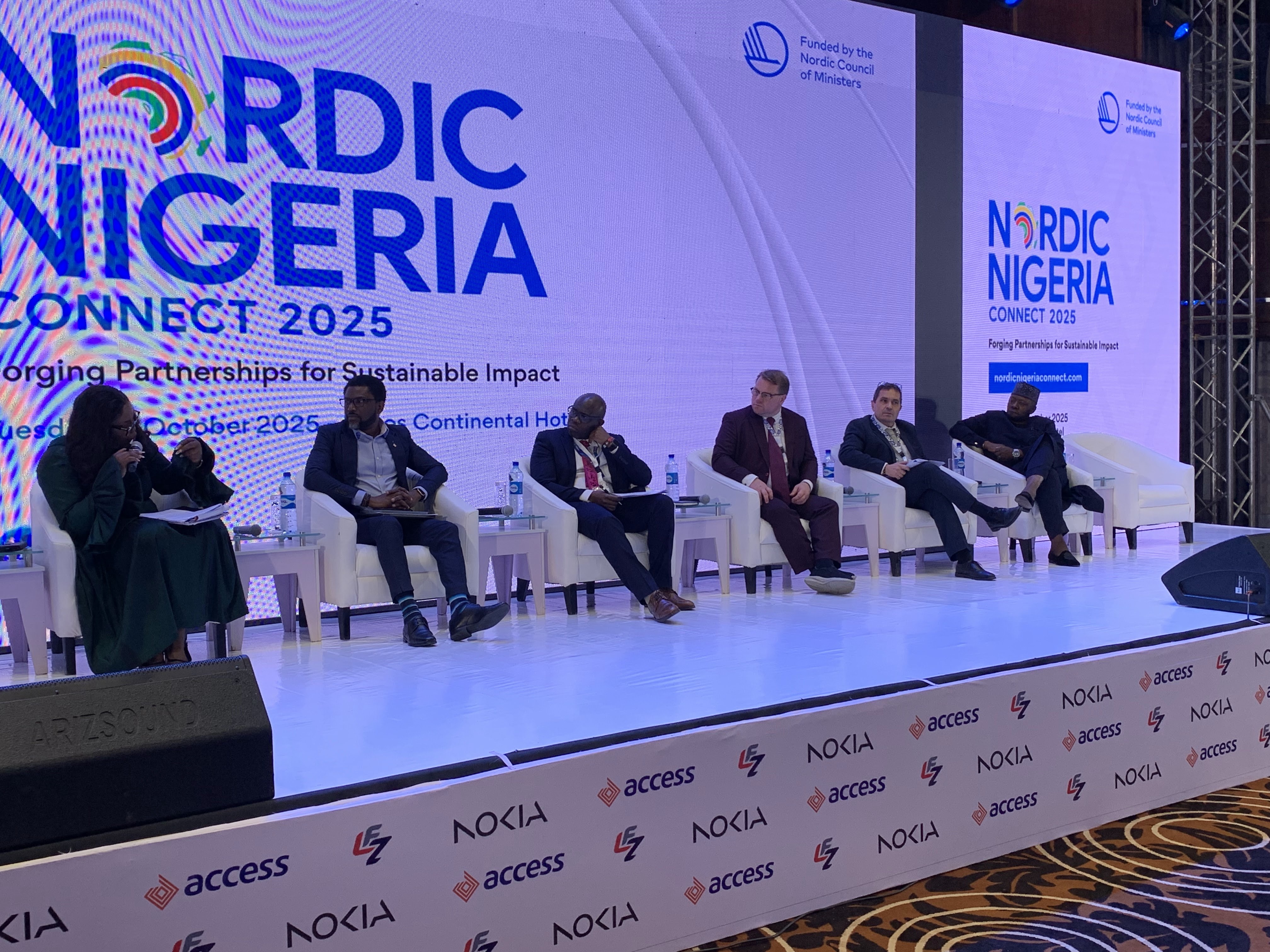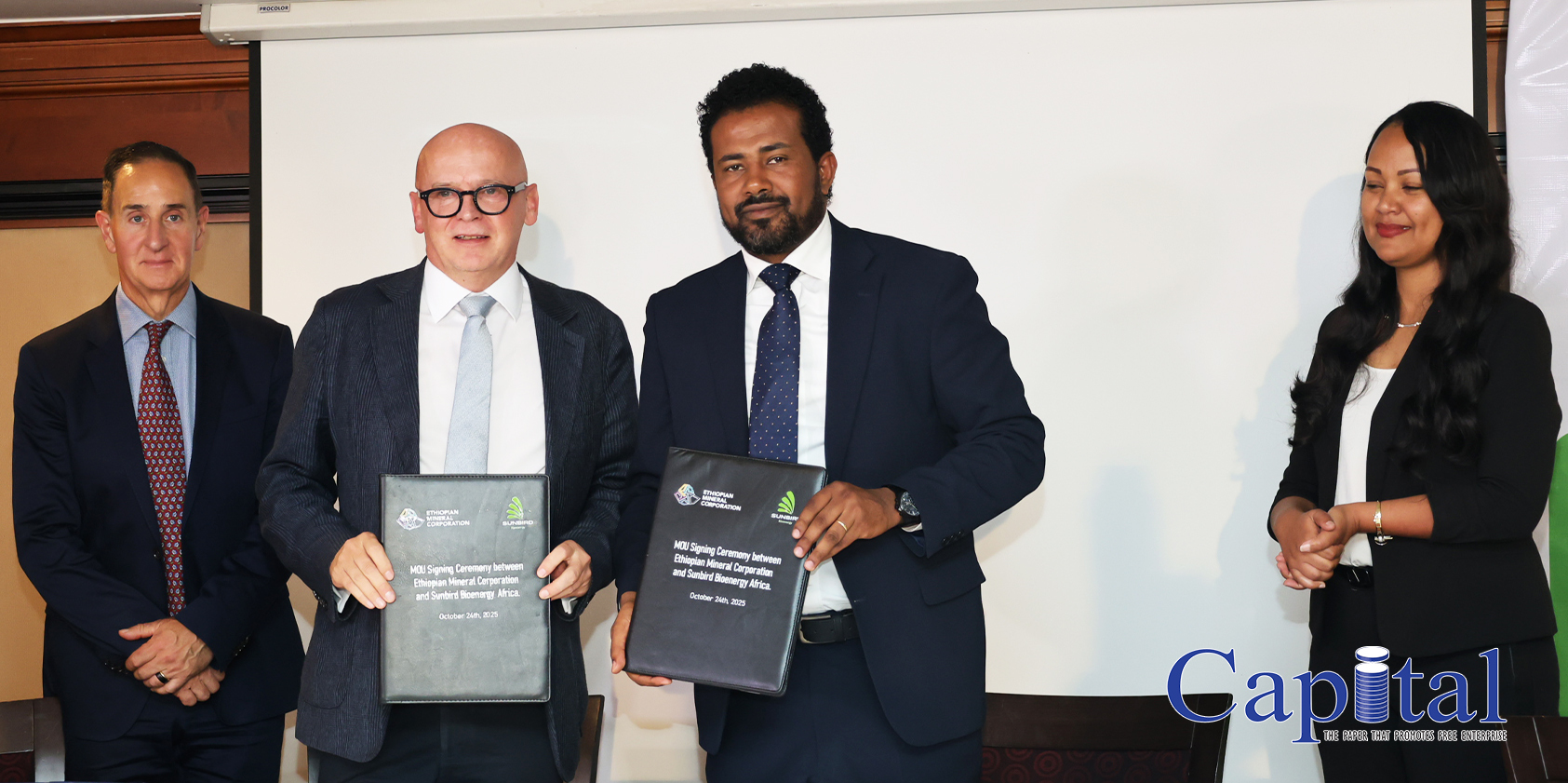At the Nordic-Nigeria Connect event held at the Continental Hotel, Victoria Island, Panel Session 3 explored the theme "From Idea to Impact: Taking Innovation Forward in Nigeria." Entrepreneurs, climate experts, financiers, and policymakers converged to chart real pathways from creativity to change.
Speakers agreed that green innovation needs more than ideas. It requires capital, resilience, and partnerships that deliver lasting transformation and progress.
From Concept to Impact: Scaling Nigeria's Green Innovation
Nigeria's path to sustainability and climate resilience depends on turning entrepreneurial energy into practical solutions. At the Nordic-Nigeria Connect event, Panel Session 3 convened startups, policymakers, financiers, and ecosystem leaders to bridge the "valley of death" between groundbreaking environmental ideas and scalable businesses.
Circular economy innovators shared progress in recycling and clean energy but also highlighted persistent scaling barriers: weak funding continuity, limited financial readiness, and market gaps. Panellists stressed that success demands more than capital; it requires mentorship, blended finance, and targeted policy support.
Speakers called for government and development partners to design co-owned investment vehicles and long-term frameworks that empower innovation enterprises to thrive. The session closed with a challenge: moving from ambition to evidence-driven innovation impact.
The Innovation Gap – Ideas Need Capital, Capacity, and the Right Market
"Nigeria doesn't lack ideas; it needs a pipeline from invention to investment." Experts cited green startups successfully piloting recycling, smart agriculture, and renewable energy, driven by $40 million in climate support, and more than $1.2 billion in annual transaction value.
Yet, too many ideas stall at the pilot phase due to weak financing paths, knowledge gaps, and inadequate market structures.
Supporting Scale – Blended Finance, Skills, and Market Infrastructure
The dialogue dissected what works:
- Robust grant and concessional capital for early-stage deployment
- Incubator programs focused on capacity-building before funding
- Financial products for different stages
- Clear policies that simplify compliance and ease burdens on young enterprises
- Partnerships with government to ensure public procurement and infrastructure enable private scaling
| Challenge | Current Limitation | Solution Path |
|---|---|---|
| Funding Flow | Patchy early-stage, rare follow-on | Blended, staged capital |
| Business Skills | Weak market, financial acumen | Incubators, accelerator models |
| Policy/Procurement | Opaque, slow, high-risk | Transparent PPP, regional projects |
Circular, Resilient, and Inclusive Markets for Climate Impact
Speakers championed Nigeria's potential to anchor Africa's circular economy. They pointed to 10,000 tons of waste recycled, innovative e-waste hubs, and a new generation of clean energy entrepreneurs.
For real progress, panellists urged:
"Make climate literacy universal, embed climate innovation in communities, and link rural-urban value chains." Strategic investment in digital infrastructure, regional data centres, and scalable logistics was highlighted as key.
| Impact Goal | Local Example | Scalable Opportunity |
|---|---|---|
| Circular Economy | Aggregator partnerships, 10,000 tons recycled | Rural-to-urban market hubs |
| Clean Tech | Solar irrigation, e-waste campuses | Regional export, green jobs |
| Climate Literacy | Gospel teaching for NGOs, school programs | Universal entrepreneurial talent |
Policy, Partnerships, Evidence – Proof Over Pitch
Closing calls included:
- Blended finance platforms linking grant, concessional, and commercial capital
- Open-data procurement to boost small firm access
- Regional climate innovation networks
- Cross-sector accelerators and hubs
- PPP reforms for transparent, long-term opportunity
| Action Lever | Stakeholders | Metric/Outcome |
|---|---|---|
| Finance Blending | Gov., DFI, private investors | Startups funded/scaled |
| Local Incubation | NGOs, universities, hubs | Jobs, enterprise survival |
| Market Access | Trade agencies, state govts | PPPs/infra projects run |
Scaling Nigeria's Green Startup Ecosystem
| Ecosystem Upgrade | Critical Input | Desired Impact |
|---|---|---|
| Policy Reform | PPP transparency | Fast procurement, fairer markets |
| Incubation & Skills | Hands-on, tailored | High survival, true scale-up |
| Climate Data/Digital | Infrastructure | Evidence for success, better targeting |
Path Forward – Closing Nigeria's Innovation Gap
The next decade will favour those who turn Nigeria's ideas into impactful solutions, transforming climate challenges into business opportunities and evidence into progress. Innovation must move beyond pilots to scalable change.
With bold policy, catalytic capital, and a culture grounded in measurable outcomes, Nigeria's green economy can emerge as Africa's benchmark for inclusive, people-centred growth and sustainable transformation.











